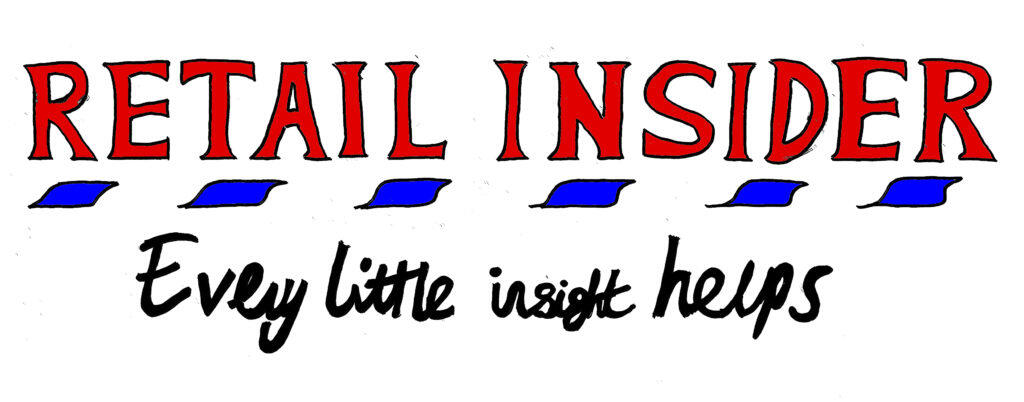Innovative Retailer: Tillingham Wines

The Name: Tillingham Wines
The Place: Nestled in a farmstead on the hills around Rye, Sussex since 2017, and selling domestically both online and through distributors as well as exporting internationally.
The Story: Wine. Simple innit? Just buy a few acres, grow the things and then get the expert in to make the stuff. Bottle it. Job done.
What could go wrong? Well, quite a lot actually although the founder of Tillingham Wines Ben Walgate is admittedly making it all look very straightforward at the moment. A man who can sell his first sparkling English wine at £55 and is looking at his first home grown still vintages in small bottles of 500ml going for a likely £45 is clearly doing something innovative on the supply and demand front and we insist on knowing what.
I am sitting comfortably. You may pour the wine and begin: Lesson one from the Walgate school of wine/retail is really to forget the usual wine production technique of focusing on a few core wines and making an awful lot of them – he is making wine more in the style of perhaps a modern experimenting beer brewer where new products come out all the time. In only four years of producing wine Tillingham Wines has released 60 different ones.
Crikey: Indeed. And of course that means that he makes small (sometimes very small) runs of those individual wines. For example in 2020 Walgate released 20+ wines into 35,000 bottles so you can do the maths.
Err: Oh for goodness sake. A few of the core product range will have a few thousand bottles produced but plenty of others might only have a run of 300 bottles. And you know what that means….
Umm: That allows you to do with the wines what you can do to great effect with sneakers.
Ah yes, of course. But just remind me: It means you can ‘drop’ limited editions of your newest products at very regular intervals – keeping your products both in the public eye constantly and also meaning that there is a scarcity value that brings its own kudos with the public and distributors alike. (The quality has to be there of course otherwise the whole thing falls over).
Clever: And super successful to date. About a third of the production is sold direct-to-consumer (DTC), another third exported (lots to Scandinavians who love natural wine, according to Walgate) and a final third through wholesalers. And a retailer who gets 10-12 bottles of the most popular wines is doing pretty darn well. But this statistic may surprise you.
Go on: As much as 75% of Tillingham Wines’ revenue is currently from hospitality involving an on-site restaurant with 50 covers, a barn with pizza oven with another 50 covers, an outside catering area with another 50 covers, topped off with 11 rooms in a converted hop barn. Walgate does expect this proportion to skew back towards 50%/50% in due course but it’s another clue as to how he has covered all the bases – you can lose a lot of money into a winery for a handful of years until your own grapes start coming through – a fact lots of would-be wine producers overlook to their cost. Walgate has had to use bought-in grapes for the wines from 2017 to 2019.
So Tillingham was grape-proofed with hospitality: Yes, and in doing so it goes without saying Walgate had built up a loyal and interested clientele with its rustic charm who then snapped up his first own-produced wine in 2021 with alacrity.
It’s the whole story thing isn’t it? Yup. The farmstead includes a walled garden, a small holding of animals and the kind of field-to-fork model beloved of the modern consumer as well as natural winemaking. If people believe in the philosophy then they will buy the brand so when Field Blend One, Field Blend Two and Saw Pit were released this year in a three-pack of small 500ml bottles priced at over £100 it quickly sold out.
Simply add to the mix a maverick winemaker! Not even sure if he describes himself as maverick. What Walgate does say is that he “knows enough but is not afraid to ignore what I am told is the right way”. A case in point is that he was told that the consumer will be confused if a winery makes too many wines. Clearly rubbish.
Sound the error klaxon: Absolutely – experimentation is key to the differentiation at Tillingham. Working with a wide range of grapes could be seen as risky but is also a clever insurance policy. The basic theory is that with the best grapes and careful watching what can go wrong.
Is this going to be the future mantra ongoing? Some bits will change. Over time no more grapes will need to be brought in, production could potentially double up to 70k bottles per year. The current number of employees is around 40 and that will probably go up as this is a labour intensive business. What won’t change is the use of standout artwork on the labels – yet another retail trick that Tillingham has mastered and the use of Qvevri (a kind of large earthenware pot used in Georgia for fermenting wine for hundreds of years).
How traditional. You’ll be telling me next they still have people foot-stomping the grapes. Ha ha! Actually Walgate has been there and done it.
Do you pay extra for that? No.
Flooid has evolved from the PCMS heritage to better serve retailers looking to deliver customer engagement across multichannel, multi-vertical operations. The Flooid Basket follows individual customers, not channels, allowing retailers to offer seamless, personalised customer experiences across any vertical, device or location. The new Flooid name, logo and brand visuals reflect a modern, fluid way of shopping, as well as the ability of retailers to embrace no limits innovation using Flooid’s technology.



